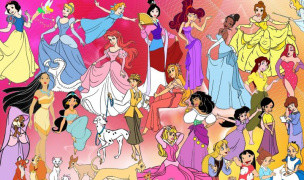 20 Terms
20 TermsHome > Industry/Domain > Biology; Medical > Human genome
Human genome
The human genome consists of 23 chromosome and the small mitochondrial DNA. 22 of the 23 chromosomes are autosomal chromosome pairs and the last one being a gender-determining pair. In total, the human genome contains the sequences of the 3 billion chemical base pairs that make up human DNA and approximately 20,000-25,000 genes. By understanding human genome, scientists are able to develop new medical applications that can significantly advance the state of health care.
Contributors in Human genome
Human genome
Enzyme
Medical; Human genome
1) A protein that speeds up chemical reactions in the body. 2) An enzyme is a biological catalyst and is almost always a protein. It speeds up the rate of a specific chemical reaction in the cell. ...
Dosage analysis
Medical; Human genome
Method of measuring the quantity of a variety of analytes, including DNA, RNA, and protein, by comparison with a known standard; can be used to determine the number of copies of a sequence of DNA ...
Endocrine system
Medical; Human genome
1) The system of glands that release their secretions (hormones) directly into the circulatory system. In addition to the endocrine glands, included are the chromaffin system and the neurosecretory ...
Enzyme assay
Medical; Human genome
Measurement of enzyme activity with a particular substrate; can be assessed in a variety of ways including quantification of the end product or colorimetric analysis.
Eugenics
Medical; Human genome
Applied science or the biosocial movement which advocates the use of practises aimed at improving the genetic composition of a population. Usually refers to human populations.
Dysgenesis
Medical; Human genome
Refers to any abnormality, anatomical or biochemical, evident at birth or during the neonatal period.


